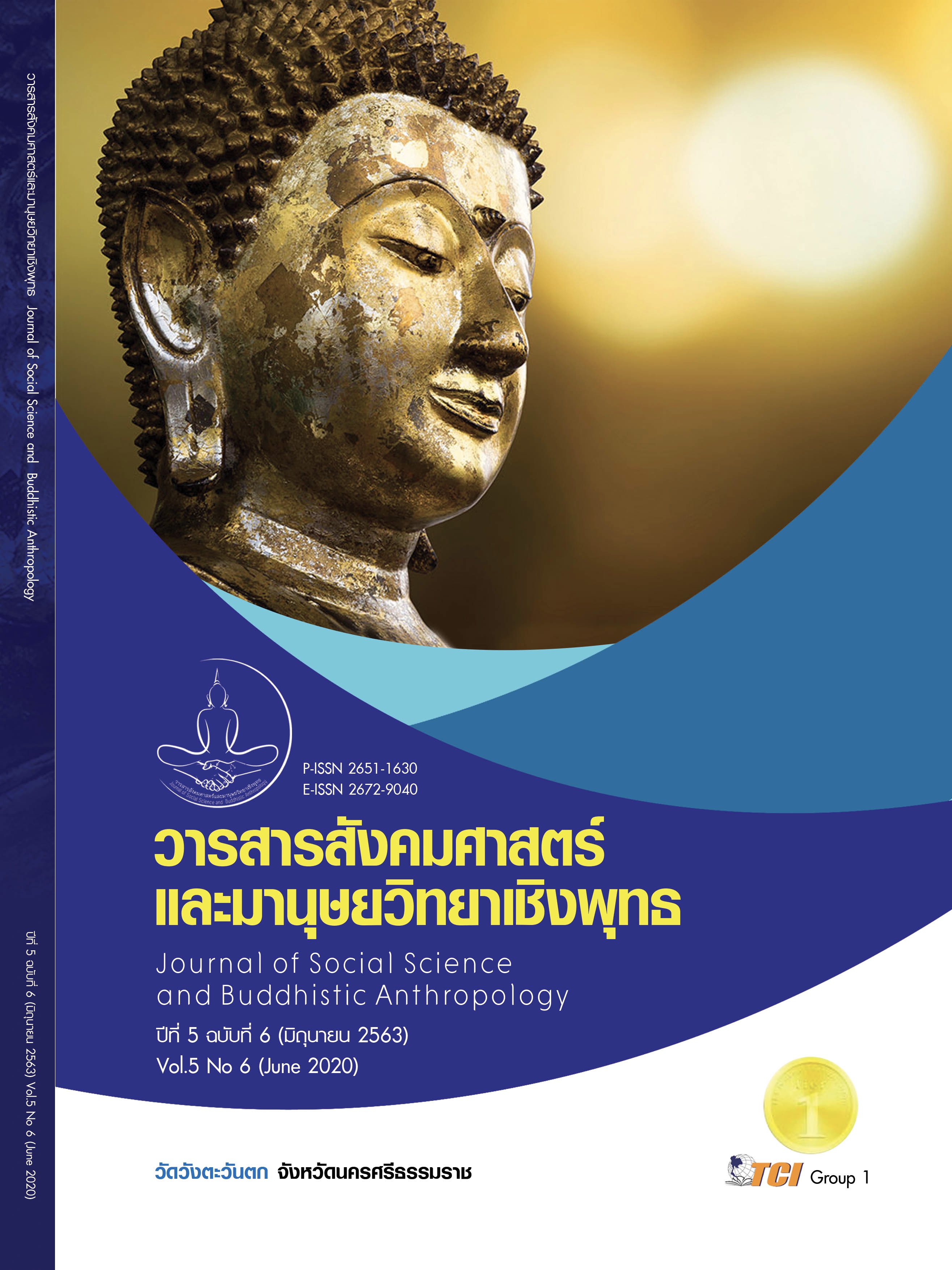DEVELOPMENT OF SECURITY GUARDS’ FUNCTIONAL COMPETENCIES MODEL IN PRIVATE SECTOR
Keywords:
Development Model, Competency, Security Guard, Private SectorAbstract
The purposes of this research were 1) study the level of competency according to the line of private security guards, 2) compare the personal factors of the security guards affecting the line of work of the security guards and 3) study the conditions of competencies in the work of private security guards. The sample group used in the research was security guards in Bangkok by calculating the formula, Taro Yamane has a sample size of 400 people and an in-depth interview group consisting of 7 security business owners and 30 manager roles for each company and a group of 6participants to assess the capacity development model based on the work of private security personnel which analyzed the data quantitative and qualitative through the program the research instruments were questionnaires and in-depth interviews. The finding of this research were as follows: 1) level of knowledge competency feature at low level while the skills competency was at a medium level. 2) It was found that there were no differences in personal factors in sex and age at work. Personal factors in age, education and income were different in the overall and skills and picture status were different in the overall, and 3) found that some problems and obstacles in work arose from employees still lack of attention in performing their duties and using the SWOT concept and Tows Matrix techniques to analyze the cause of the problem, found that the management system that does not strengthen standards and efficiency and the policy regarding the limited budget.
References
ณัฎฐ์ชนินท์ พยัคฆชาติ และกฤช จรินโท. (2558). สมรรถนะอาชีพรักษาความปลอดภัยที่มีอิทธิพลต่อความภักดีที่มีผลต่อบริษัท รักษาความปลอดภัย ดวงพรดี จํากัด. ใน โปสเตอร์นำเสนอ การประชุมวิชาการ. มหาวิทยาลัยบูรพา.
บุญเรียง ขจรศิลป์. (2543). วิธีวิจัยทางการศึกษา. (พิมพ์ครั้งที่ 5). กรุงเทพมหานคร: พี.เอ็น.การพิมพ์.
พงษ์กฤษณ์ มงคลสินธุ์ และคณะ. (2552). การศึกษาวิจัยเพื่อพัฒนามาตรฐานอาชีพรักษาความปลอดภัย. กรุงเทพมหานคร: คณะสังคมสงเคราะห์ศาสตร์ มหาวิทยาลัยธรรมศาสตร์ .
พิรพัฒน์ วรรณ์แสงแก้ว และคณะ. (2556). การพัฒนารูปแบบการประเมินผลการปฏิบัติงานโดยใช้สมรรถนะเป็นฐานเพื่อการพัฒนาพนักงานในธุรกิจรักษาความปลอดภัย. วารสารคุรุศาสตร์, 42: ฉบับพิเศษ (กันยายน), 18-32.
โพสต์ทูเดย์. (2562). จัดระเบียบ รปภ เมื่อวุฒิการศึกษาสำคัญกว่าประสบการณ์ชีวิต. เรียกใช้เมื่อ 14 ธันวาคม 2562 จาก https://www.posttoday.com/politic/report /425934)
อาภรณ์ ภู่วิทยพันธุ์. (2548). Competency dictionary. กรุงเทพมหานคร: เอช อาร์ เซ็นเตอร์.
Chaiyachai, R. (2010). Social learning theory and stone-throwing behavior: the measure of crime prevention crime control and crime solving. In Master of Sociology Thesis Criminology and Justice. Chulalongkorn University.
International Crime Threat Assessment. (2017). Chapter V: The Future of International Crime. Washington, DC: US Government Printing Office.
Khantee, P. et al. (2015). Criminology theory: principles Research and Applied Policy. Bangkok: S. Charoen Printing. (In Thai).
Likert, R. A. (1932). Technique for the Measurement of Attitude. Archives Psychological, 3(1), 42-48.
Porter, M. E. . (1985). Value chain Analysis Competitive Advantage. New York: Free Press.
Thairath Online. (2019). Collecting single invasions, hijacking money, Lotus, Chonburi Unemployed claims – gambling. Retrieved September 23, 2019, from https://www.thairath.co.th/content/461955
Yamane, T. (1973). Statistics: An Introductory Analysis. New York: Harper and Row Publication.









